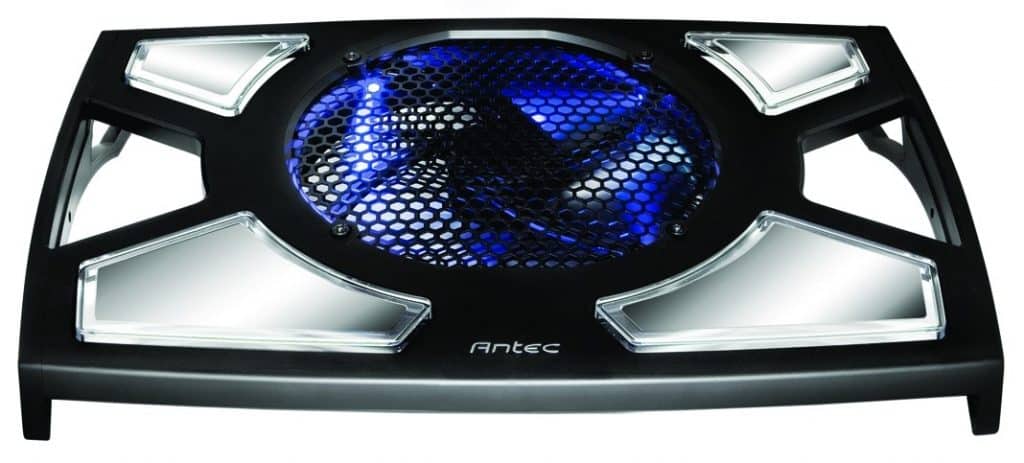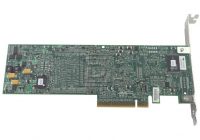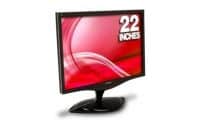 VERDICT
VERDICT
Environmentally friendly personal computer but expensive & underpowered
PROS
Made from recycled materials; low power consumption; runs cool & quiet
CONS
Expensive; middling specification & performance; non user-serviceable
COMPANY
PC World
http://www.pcworld.co.uk
Say hello to the Advent Eco PC (£599, or with a 19-inch widescreen display for £699), PC World’s first bespoke energy-saving personal computer made from recycled aluminium and plastic. Considerably smaller than a regular desktop tower system, the wholly-black machine consumes very little desk space at all. And thanks to the supplied wireless keyboard with integrated mouse trackball, there are no wires to clutter your neat working area. Featuring an innovative fanless self-cooling system, the Advent Eco PC even runs silently, allowing you to get on with your computing duties in peace.In addition to its excellent build quality and unobtrusive size (barely the size of a shoe box), the biggest selling point of the Advent Eco PC is that it uses a minimal 25 watts of power – around half of the power it takes to light a typical household light bulb (60 watts) – so it’s very cheap to run. By comparison, a typical desktop computer uses about 65 to 250 watts. Work the machine hard at it’ll use approximately 50 watts of power.
With most electrical devices you can look at the label to see how much energy they use, but that doesn’t work so well with computers because the label gives the theoretical maximum, not the typical amount used. A computer whose label or power supply says 300 watts might only use about 70 watts when it’s actually running, and only 100 even in peak times with serious number-crunching and all the drives spinning. Putting this into context, a regular home PC running for 4 hours a day will cost around £43 per year. Running the Advent Eco PC in Energy Saver mode should save you around £8. Every little helps!
Despite its compact dimensions the machine packs a reasonable array of features. While it’s not powerful enough to set the gaming world alight, it’s more than capable of running core computing functions – think of it like a laptop. Non-negotiable specifications include an Intel T5250 Core 2 Duo processor (1.50GHz, 667MHz FSB, 2MB Cache), 2GB of DDR2 667MHz memory, Intel 965 Express graphics chipset, slot-loading Dual Layer DVD±RW burner, and a 2.5-inch 160GB SATA hard disk drive (ideally it should use a solid-state drive). It also powers Windows Vista Home Premium and sports an integrated 802.11b/g Wi-Fi card, which is ideal for browsing the Web wirelessly – especially if your router is in a different room to your computer.
The front of the machine simply houses the power button and optical drive, but the rear is where it’s all happening thanks to a large Wi-Fi aerial, DVI, VGA and S-Video video outputs, four USB ports, 10/100 Ethernet and serial ports, and six audio ports. There are also old-school PS/2 keyboard and mouse connectors, though these will probably remain redundant because the machine comes with a Bluetooth dongle that communicates with the wireless keyboard. Sadly, there are no FireWire or eSATA ports, and the lack of any USB and audio-out ports at the front of the machine means you’ll have to fumble around at the back to connect peripherals and headphones.
Consumers are increasingly aware of the energy they use for both environmental and financial reasons. Requiring only around 20% of the energy used by average PCs, the Eco PC uses the most energy efficient parts available while maintaining modest specifications to ensure it is fully able to keep up with the modern demands of everyday computing. PC World should be commended for making the Eco PC as eco-friendly as possible – the supplied batteries (and 6-hour quick-charger) for the keyboard are recyclable and packaging has been minimised ensuring that all the manuals (excluding the safety manual) are pre-installed. The setup guide is even printed on the side of the box!
The Advent Eco PC lives up to its name and should be considered by conscientious consumers looking to invest in a new PC that doesn’t cost the earth to run. Gamers and heavy multimedia users won’t be satisfied, especially as the machine is non user-serviceable and there’s no Blu-ray option, but for mass-market users going green it’s not a bad choice. Our only reservation is that for the same price you can get a Dell Studio Hybrid, an exciting machine that has more aesthetic appeal and is far better specified – it even comes in a choice of colours and supports an optional Blu-ray ROM drive. [6.5]






